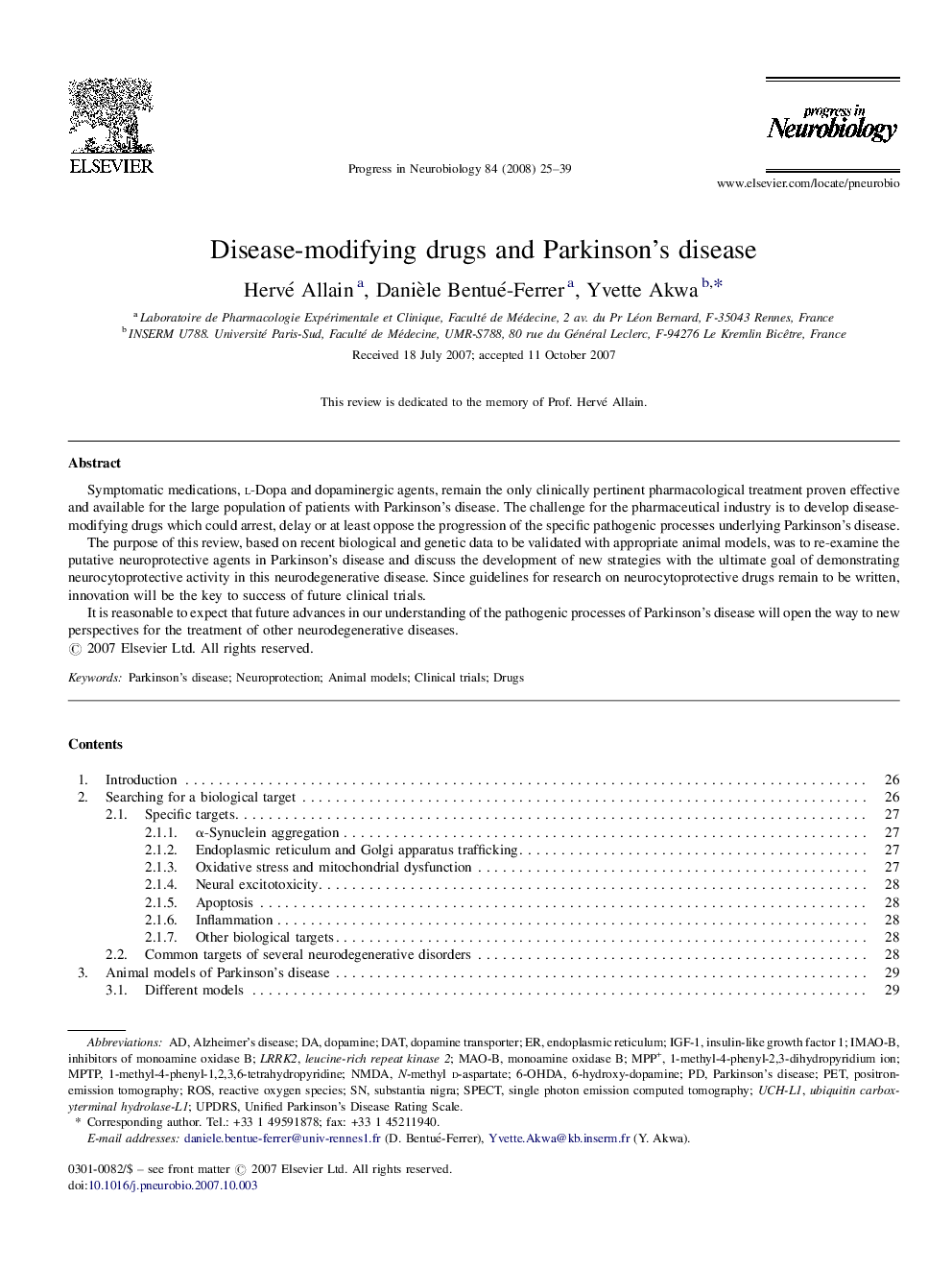| Article ID | Journal | Published Year | Pages | File Type |
|---|---|---|---|---|
| 4353930 | Progress in Neurobiology | 2008 | 15 Pages |
Symptomatic medications, l-Dopa and dopaminergic agents, remain the only clinically pertinent pharmacological treatment proven effective and available for the large population of patients with Parkinson's disease. The challenge for the pharmaceutical industry is to develop disease-modifying drugs which could arrest, delay or at least oppose the progression of the specific pathogenic processes underlying Parkinson's disease.The purpose of this review, based on recent biological and genetic data to be validated with appropriate animal models, was to re-examine the putative neuroprotective agents in Parkinson's disease and discuss the development of new strategies with the ultimate goal of demonstrating neurocytoprotective activity in this neurodegenerative disease. Since guidelines for research on neurocytoprotective drugs remain to be written, innovation will be the key to success of future clinical trials.It is reasonable to expect that future advances in our understanding of the pathogenic processes of Parkinson's disease will open the way to new perspectives for the treatment of other neurodegenerative diseases.
